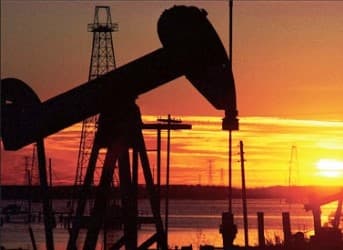Few members of OPEC posted gains in the series of market reports published last week. The International Energy Agency said OPEC crude oil production for August was down, though gains from North American producers made up for much of the shortfall. According to a report from the U.S. Energy Department, Iraq was one of the bright spots among OPEC members. The security situation there, however, is precarious at best. For Libya, the situation is far worse. Tentative democratic steps made in the region in 2011 have yet to translate into security gains. An assessment of this year's terrorism attack in OPEC-member Algeria shows the industry is not prepared to work in the new environment that came out of the Arab Spring.
The IEA said in its latest market report that production from OPEC declined 260,000 barrels per day in August to 30.5 million bpd. A breakdown by the U.S. Energy Department's Energy Information Administration finds Iraq and the United Arab Emirates were among the few OPEC members in the region producing more oil during the second quarter of 2013 when compared with the same time last year. Conflict in Syria, however, may put a dent in Iraq's potential. Libyan oil production, meanwhile, is down from a pre-2011 high of approximately 1.6 million bpd to, for all intents and purposes, nothing. OPEC itself said that, on the broader front, "the uncertain political and security climate" continues to limit regional economies significantly below their potentials.
President Obama in May 2011 welcomed the voices of democratic change ringing out from places like Cairo, Benghazi and Damascus.
"Through the moral force of nonviolence, the people of the region have achieved more change in six months than terrorists have accomplished in decades," he said then.
Related article: Egypt for Sale
Some of those voices in Cairo, Benghazi and Damascus have since changed. More than two years after the Arab Spring, violence in Libya forced the government to shut down most of its oil export terminals. In January, terrorists managed to accomplish one of the most brazen attacks in years when they stormed the In Amenas natural gas facility in Algeria. The Algerian government is still reviewing just when foreign workers can return to the facility where dozens of workers died. The man behind the attack, Mokhtar Belmokhtar, appeared in a recent video, dispelling the myth he was taken out of action March.
Norwegian energy company Statoil, a member of the joint venture that includes BP and Algeria's state oil company Sonatrach, said in a report last week the January attack was an "unprecedented" event for the region's energy sector. It found that neither the industry itself nor the Algerian military were able to prevent the attack and no party was able to conceive of such a large assault on the facility in the first place.
The 88-page report states that, in the event of acts of terrorism, it's outside the scope of action for a company itself to address the threat. That, said Statoil, is a matter for state authorities. But given the circumstances in Libya, Iraq and elsewhere in the region, a lawless state has little to offer the energy sector in terms of a viable state of security.
By. Daniel J. Graeber of Oilprice.com

















